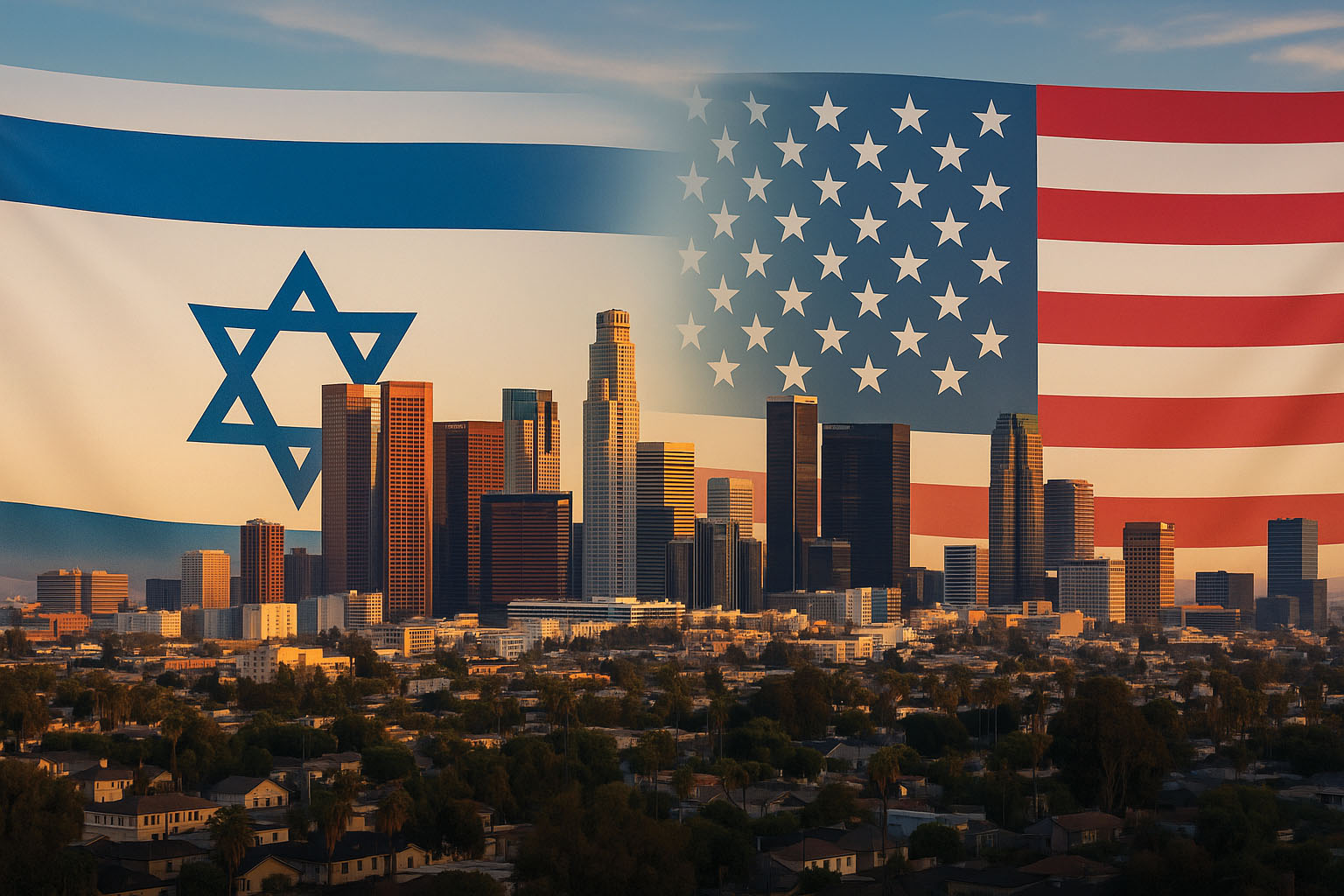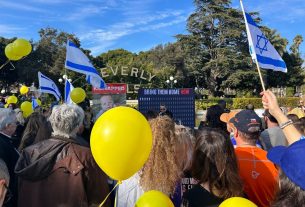As the late comedian George Carlin once said, “It’s called the American Dream because you have to be asleep to believe it.” For the Los Angeles Jewish community, this question might feel like an invitation to a heated debate over bagels and lox at Nate and Al’s on a Sunday morning where the answer is less finite than a simple “yes” or a “no” but rather something along the lines of “it’s complicated.” The American Dream — a mythical concept that has lured millions of immigrants to our shores in search of a better tomorrow — has inspired generations to believe in a land of opportunity where hard work pays off and tomorrow promises to be better than today. But in the glittering hills and sprawling urban expanse of Los Angeles, where cultural vibrancy meets economic stratification, the answer is more nuanced than binary data might indicate.
For much of the 20th century, the Jewish community in Los Angeles epitomized the promise of the American Dream. Immigrants, such as my grandparents who were Holocaust survivors, arrived several years after the war with little more than a suitcase and a prayer of hope. From Boyle Heights to Beverly Hills, they built businesses, launched careers in Hollywood, and established institutions that became cornerstones of Jewish life. Synagogues, schools, and cultural centers sprouted, each a testament to the community’s resilience and upward trajectory.
Yet, as we fast-forward to the modern day, cracks in this golden narrative have begun to show. Rising costs of living, an ever-widening wealth gap and shifts in societal values have posed significant challenges. For those who have been able to profit from the generational wealth that has characterized American dynastic wealth building across generations, the American Dream feels just as vibrant today as it did decades ago. For others, the golden era of Los Angeles seems more like a distant memory, dulled by economic pressures and existential uncertainties.
Bankrate, Newsweek and the National Association of Realtors consistently rank Los Angeles as one of the most expensive cities in the United States. From housing to healthcare, the cost of living feels less like an inconvenient hurdle and more like a stone wall for many families. For members of the Jewish community, these financial pressures are exacerbated by the cost of maintaining a distinctly Jewish lifestyle. Day school tuition, synagogue membership, and kosher food all seem to be gatekept by high financial barriers to entry, yet all are integral to fostering a sense of identity and continuity.
For instance, the dream of owning a home — a cornerstone of the American Dream — has become increasingly unattainable with a household income of $220,000 required to buy the median priced home of close to 1 million dollars yet the median household income is hovering significantly below at around $87K. Neighborhoods like Pico-Robertson, known for their vibrant Jewish life, are now synonymous with skyrocketing rent and prohibitive real estate prices, given the captive audience of observant families needing to live in a communal setting that is walking distance to houses of worship. Young families often find themselves wondering whether they can afford to stay in the city that once felt like the promised land for their parents and grandparents.
However, through periods of natural disasters and economic uncertainties, the Los Angeles Jewish community has proven to be remarkably cohesive and resourceful. For every challenge the American Dream faces, there is a counterpoint of ingenuity and determination. Start-ups flourish, nonprofits thrive and Hollywood continues to serve as a beacon of Jewish creativity and influence. Organizations like the Jewish Federation of Greater Los Angeles, Bet Tzedek, Jewish Free Loan Association and the USC Casden Institute work tirelessly to provide resources, scholarships, and support systems that help families navigate the complexities of life when it never seems to go according to plan.
Perhaps the most compelling argument isn’t whether the American Dream is dead for our historic Jewish community, but whether it’s evolving. For many within the Los Angeles Jewish community, out of necessity the dream has shifted its focus. Given the ever-growing barriers to entry, the dream is now less about material prosperity and more about cultural preservation, spiritual fulfillment, and social justice. In a city as diverse and dynamic as Los Angeles, the Jewish community has embraced its role as both a participant in and a shaper of the broader cultural narrative. Young Jewish Angelenos are increasingly drawn to careers and causes that prioritize making a difference over making a fortune.
Sustainability initiatives, interfaith dialogue as evidenced by the incredible work of Dr. Saba Soomekh at the American Jewish Committee and social activism have become as much a part of the communal fabric as Shabbat dinners and Passover Seders. The American Dream, in this context, isn’t dead — it’s just wearing a new outfit: a Purim costume of sorts setting the stage for another chapter of Jewish continuity and survival in the face of uncertainty from all angles.
In essence, to return to the question of the moment of whether the American Dream is dead for the Los Angeles Jewish community, the answer, like our city itself, is layered and complex. For some, the dream is alive and well, a testament to hard work and the benefit of generational wealth. For others, it feels like a relic, obscured by the harsh realities of modern life.
But perhaps the real takeaway is that the American Dream isn’t a static concept — it’s a living, breathing idea, one that evolves with each generation. In Los Angeles, a city that thrives on reinvention, the Jewish community has shown that dreams may bend, but they rarely break. Whether through creativity, resilience or sheer chutzpah, this community continues to navigate the challenges of the present while holding onto the collective prayer of hope that has sustained us through centuries.
Lisa Ansell Schneider is the Associate Director of the USC Casden Institute and Lecturer of Hebrew Language at Hebrew Union College-Jewish Institute of Religion Los Angeles.




